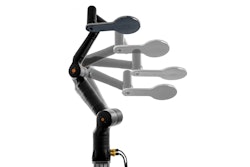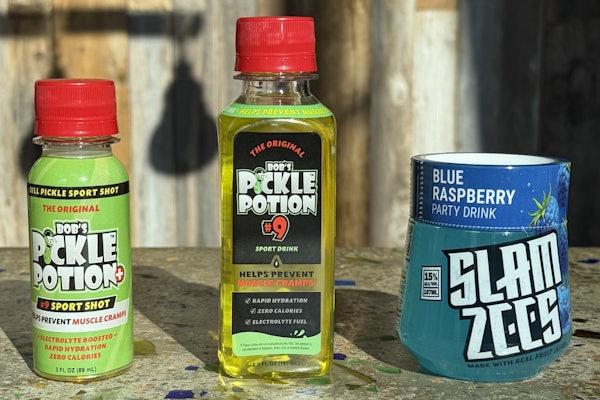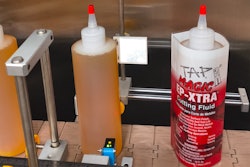Of all the companies clamoring for partnerships with contract manufacturers and packagers, the ones that come to the table with their homework done rise to the top.
That’s according to the handful of co-man and co-pack executives that spoke at Naturally Chicago’s October 13 webinar, Finding the Co-Packer Who is Right for You.
How to Stand Out to Contract manufacturers and Packagers
The baseline hurdle for a co-man partnership is a plant’s manufacturing capability for specific types of products.
Beyond that though, brands should “have a vision, they really understand what their brand promise is, they understand they’re meeting a market need,” says Pete Tsudis, CEO at TruFood Manufacturing. “Having that leadership there in a brand is key, and us as co-mans can see that.”
Tsudis says the best brand partners also “have a real strong understanding of what their products are, what their finished goods specifications are, they know how their products are made, they understand their costs.” And lastly, he stressed the importance of a solid two-way partnership for accountability.
Peter Cokinos, COO and executive vice president at Palermo’s Pizza, says brand distinction and innovation are also key.
Cokinos sees opportunity when a brand’s vision “is a spot where there is an opening, and no one’s playing in this area right now,” he says. “So we’re willing to make an investment, go in there with this brand company, to help them garnish this space out in the retail community so that they can win.”
Aligning company values can also lead to a great partnership, according to Mike Weglarz, executive vice president of commercialization at The Fresh Factory. Clean label brands have great selling power for his company.
“We don’t want to put chemical preservatives in more food in the industry. We want to take them out, take out high fructose corn syrup,” Weglarz says.
And of course, previous experience can make for an especially easy process, as Weglarz says, “it’s a lot easier to go with somebody that is currently in production and leaving their co-man, versus somebody that does not have a finished formula beyond benchtop.”
Cokinos cautioned that brands sometimes come to the table without a strong base of industry knowledge.
He says his company gets several calls from “the person who says ‘my grandmother has the best recipe in the world, and I’ve been told to bring it to my grocery store as quickly as I can,’ and not having that realistic expectation of what that really means.”
Opportunities for the Underdog
While preparedness is key, at-home entrepreneurs like those Cokinos mentioned shouldn’t lose hope. Some co-mans and co-packs are tailor made for brands early in the journey.
Toyin Kolawole, founder and CEO of Iya Foods, says her brand is also younger, and gives consideration to up-and-coming ideas in turn.
To protect resources, Iya foods created “a process flow and a checklist, where we can quickly determine if that customer’s idea or product actually fits within our manufacturing capability,” Kolawole says.
Even if a small company is “maybe a couple of steps beyond grandma’s recipe,” but isn’t ready for full-on contract packaging, Kolawole sometimes looks for “an initial menu of services we can provide,” she says.
Tsudis says if a brand presents a product TruFood cannot manufacture, “our relationship managers keep a list of people we can refer to other, smaller co-mans that can do it.”“
You support the industry that you’re in, and I think that that’s where everybody wins,” Tsudis says.
Several speakers noted that consulting firms are a great way to earn credibility as a small brand.
With a consulting firm, “you have customers paying for services, you know that they have funding just via that situation, you know that they have backing of some sort,” Weglarz says. “And honestly, that support, it provides a lot of that credibility to get through the door.”
Cautions When Starting with Contract Manufacturers and Packagers
While scaling up to a larger operation through contracting seems like a great opportunity, there are missteps to watch for along the way.
Cokinos warns against moving too fast to put a product on store shelves in response to consumer demand, ultimately affecting quality.
“I know that everybody has the best of intentions when they go down that road and they allow that to happen,” Cokinos says. “But at the end of the day, the consumer then has an experience that doesn’t relate to the prior experience that they’ve had with that product.”
Cokinos also says productivity initiatives that cut costs with new product versions can sometimes backfire. While the difference after one change might be minor, consumers might notice a drop in quality after multiple adjustments.
Supply chain issues can present challenges for everybody involved, Cokinos adds, saying brands might “have to make a compromise on a material,” when the original cannot be sourced.
Another valuable tip from Weglarz surrounds preliminary forecasts during negotiations with co-packers.
Weglarz suggests brands come to the table with a forecast that covers all potential levels of success, rather than a single number that might be inaccurate in practice.
“I do think it’s valuable to get the low/medium/high, because it allows us to prepare for any of those situations,” Weglarz says. “I think where we are most frustrated and disappointed is when somebody gives us the high scenario only, and it ends up playing out to the low.”
With these tips in mind, brands can hopefully avoid some common blunders as they scale operations. With that said, sticking to a strong brand vision is key.The most successful brands “have a vision, they have a strong sense of what their brand promise is and are not going to deviate,” Tsudis says. “They’re not going to let a co-man push them around because they believe in what they do.”
- Casey Flanagan, PMMI Media Group Editorial Assistant


























